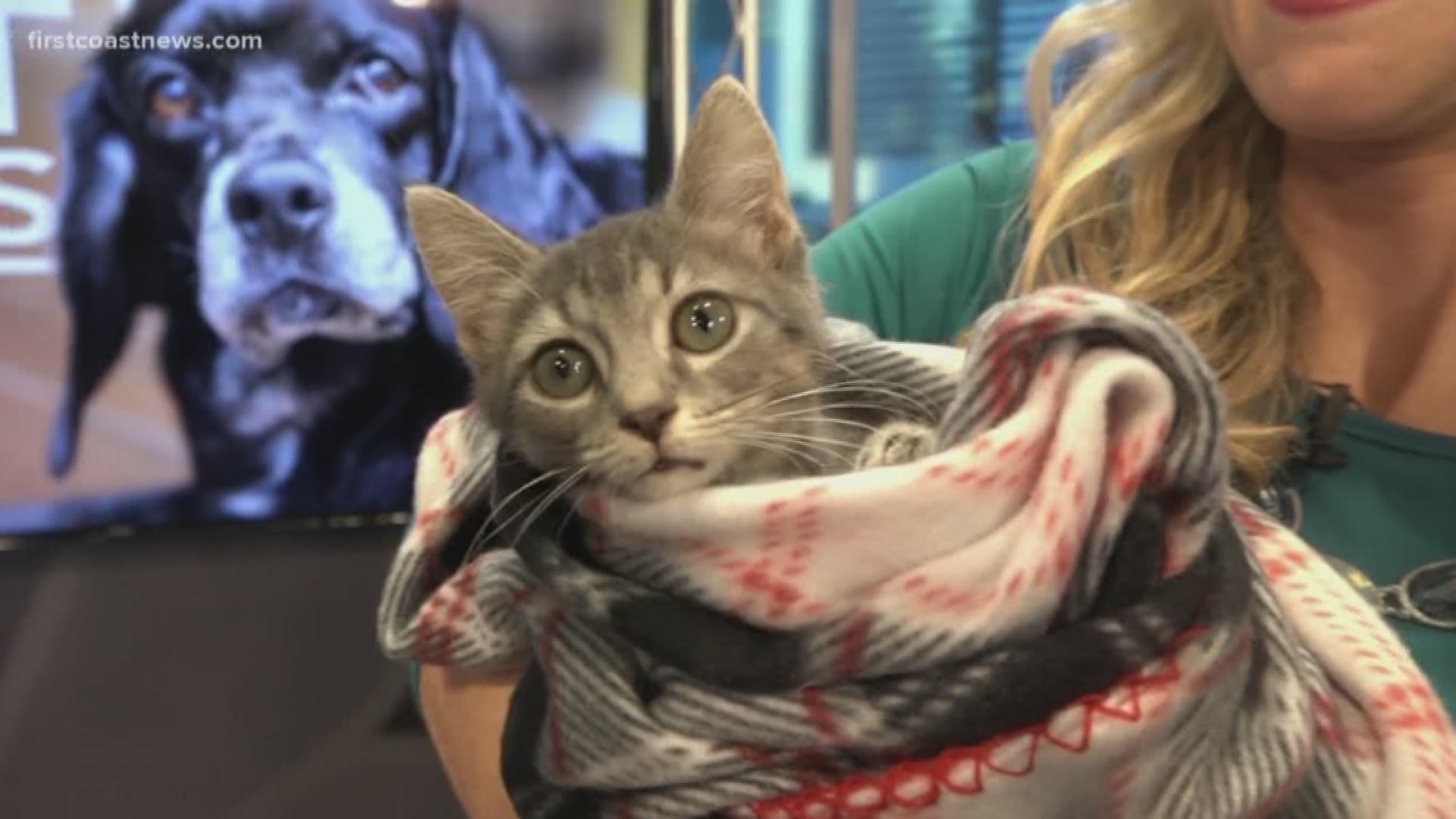Jacksonville has once again returned to citywide no-kill status following a 2018 drop in the number of shelter animals that left their kennels and cages alive.
The combined 2019 “save rate” at the community’s two main shelters — the nonprofit Jacksonville Humane Society and the city-run Animal Care and Protective Services — was 93 percent, compared to 89 percent for 2018, according to the society.
The nationally accepted standard for no-kill status is a save rate of at least 90 percent for 12 consecutive months: The only animals put down are those with irreversible illnesses or behavioral problems.
“Jacksonville is once again one of the largest no-kill communities in the country,” said society CEO Denise Deisler. “As a community we had to take a look at ourselves and ask, ‘What can we do to save those lives?’ We knew that with the help of our community, a return to no-kill was possible.”
Collaboration by the two shelters, nonprofit First Coast No More Homeless Pets, rescue groups and animal welfare organizations first achieved no-kill status in 2014. The same coalition regained it last year, Deisler and other local animal welfare leaders said.
“The increased save rate is a testament to the hard work and dedication of the staff, volunteers and fosters ... and the strong relationships and collaboration with our community partners,” said city Animal Care chief Devron Cody.
They work collectively “to ensure that every animal that enters our facilities has a fighting chance at a positive outcome,” he said.
In 2007 the city shelter euthanized 18,809 animals, almost 80 percent of its population. By 2012 the euthanasia total was 1,946 because of coalition initiatives that pushed adoptions, fosters and spay-neuter. The city hit the no-kill goal in 2014, with a commitment that no animal be put down for space reasons alone.
The 2018 drop stemmed in part due to high numbers of cats and program changes in the local animal-welfare scene. But the coalition focused on a turnaround.
“Jacksonville has proven, time and again, that when everyone works together, animals win. We are better together,” Deisler said.
The city shelter increased the number of adoption events and hired a volunteer services manager. The city obtained a “mass transport vehicle” to take large number of animals to adoption events and to rescue organizations capable of taking in animals from the city shelter, Cody said.
A $50,000 PetSmart Charities grant also helped expand the city’s pet-retention program that provides supplies, animal behavioral training, funds for medical care and housing solutions to financially struggling pet owners who might otherwise surrender their pets to the shelter.
“Pets are often surrendered ... because of temporary situations or for problems that could be easily addressed,” Cody said.
In 2019 the city-run shelter had a 90 percent save rate, while the nonprofit society had a 95 percent rate, for a citywide rate of 93 percent. In 2018 the city had an 86 percent save rate, the society, 92 percent, for a citywide rate of 89 percent.
Part of the improvement stemmed from lower kitten populations at the two shelters, which translated to fewer kittens dying there. Kitten intake for 2019 dropped from 7,575 to 6,522, the first decline since 2015.
“When looking at what had the single-greatest impact, it is without a doubt the community’s support for kitten lifesaving with our Don’t Kitnap campaign,” she said. “From citizens willing to keep found kittens out of the shelter, to private practice veterinarians providing care, to foster parents, volunteers and donors — each act of generosity made 2019 a record year for lifesaving in Jacksonville.”
Beth Reese Cravey: (904) 359-4109

